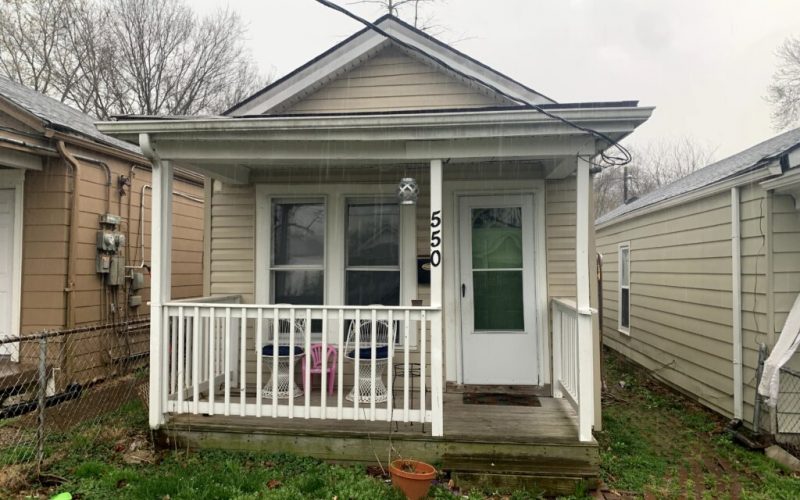No landowner enjoys having vacant property, but there are instances when units go unrented, exposing the proprietor to squatters. Many states have squatters’ rights that give trespassers specific protections, which might put the landlord or property owner in a difficult situation.
Learn what squatters’ rights are, when they apply, the states where squatters’ rights are enforced, and what the rightful owner of the real estate may do about it.
Who Is a Squatter?
A squatter is someone who resides on your property without permission. They are individuals who unlawfully entered and inhabited property without authority. Squatters do this on purpose in some circumstances, but in many others, they mistakenly believe they have the right to be on the land due to a fraudulent lease arrangement, an agreement struck with a prior owner or another legal grey area.
Types of Squatters
A squatter is someone who attempts to reside on land that they do not have permission to live on. There are three types of squatters:
- Those who trespass and occupy an unoccupied property, or
- Tenants of the property but stopped paying rent
- Those who were tenants of a property who were served with an eviction notice but have refused to leave.
Squatting on a non-residential property or in a non-residential structure is not a crime in and of itself. A non-residential building or property is any structure or land area that is not specifically constructed for residences, such as a café, shop, or office building. This type of property is also commonly referred to as commercial premises.
Regular vacant property inspections should be performed by a landlord to guarantee that the property is not occupied for the purposes of the insurance policy. Due to the absence of illegality associated with squatting in a commercial building, squatters frequently seek this sort of property, especially since it is frequently exposed to the public.
Squatters can only be arrested if they are committing another crime, such as causing damage to the property upon entry (such as smashing windows to gain entry) or causing additional harm while living there. So, other ways the police can evict squatters from non-residential properties include:
- Theft from within the property
- Unauthorized use of utilities such as electricity and gas
- Failure to comply with a noise abatement notification
- Fly-tipping
It is also a felony to refuse to leave property or land when ordered to do so by the police, the council, the owner, or if a repossession order has been issued.
What are Squatters Rights?
Squatter’s rights, also known as adverse possession laws, emerge when someone occupies a property for an extended period of time without the property owner trying eviction or otherwise interfering with access. By continuing to occupy the abandoned property, the squatter gains the right to claim legal title to the land from the original owner.
This law does not apply to a rental property where a tenant refuses to pay the agreed-upon rent to the landlord. That is known as an unlawful detainer; the owner had granted the tenant permission to occupy the property, hence the tenant has no legal right to take possession of the land. In this instance, the landowner would contact an attorney and follow the proper legal eviction procedure for their town.
What Is the Difference Between Squatting and Trespassing?
Trespassing is a criminal violation, and anyone who trespasses on land can be arrested. Squatting, on the other hand, is considered a civil problem. Squatters can still be arrested and evicted from their land if they relocate into an occupied property without the owner’s knowledge.
In legal words, the main distinction is that a trespasser breaches your property in order to gain entry, such as by breaking a window or breaking down a door. A squatter, on the other hand, enters through an unlocked door, an open sliding glass window, or an already shattered window.
Why Do Squatters Have Rights?
Squatters’ rights are primarily intended to discourage the use of vigilante justice. If landowners were allowed to use violence or the threat of violence to remove a squatter, the situation might swiftly escalate and become dangerous. Furthermore, it would foster a climate of vigilante justice that might flow over into other areas of life, undermining the sense of safety that people have grown to expect from the places they live.
Squatters have rights, which helps to promote justice in the long run. It’s comparable to tenants’ rights, which protect renters from shady landlords. The laws define each party’s rights in order to maintain real estate markets stable and talk (usually) peacefully.
When and Where are Squatters’ Rights Applicable?
A legitimate adverse possession claim requires the trespasser to physically be in open possession of the property without the owner’s permission for an extended period of time. The duration necessary to be in possession of the property ranges from five to thirty years. Also, depending on the law, the trespasser may be obliged to pay property taxes on the land during that time.
As an example, suppose a California homeowner died. A trespasser moves in and begins living there full-time while the house is in probate. During the three years it takes to complete probate, the trespasser makes improvements to the house, forms friends with the neighbors, and even uses the house as their mailing address. Out-of-state heirs inherit the home but do not advertise it immediately away because they are too preoccupied. So, after two years, the heirs fly to California to meet with a realtor, only to discover that someone has been living in the house for almost five years and has the legal right to claim the land as his own.
Squatters’ rights laws exist in all 50 states, however, the precise law varies widely by state, city, and municipality. Consult an expert attorney to determine which squatter’s rights apply to your property.
Let’s see the states that recognize squatters’ rights in the next section.
Which States Recognize the Squatters Rights?
Squatters’ rights exist in all states, but they differ in terms of how long someone must dwell on the property and what qualifies. According to Title 6, Chapter 5, Section 200 of the Code of Alabama, squatters in Alabama can acquire possession if they pay taxes or hold a deed for ten years. In Alaska, however, a squatter can obtain a deed if they have lived on the property for seven years or have paid taxes on it for ten years.
A squatter in Arizona must have a deed and have paid property taxes for three years or more. If the land is part of a city lot, they must have a deed and pay for five years. If a neighbor builds on adjoining property, either unintentionally or on purpose, and no owner protests, the neighbor inherits the land after two years. To achieve adverse possession in California, taxes must be paid on the land for only five years. Squatters, on the other hand, can gain control of land in Colorado provided they have a deed, have paid property taxes for seven years, or have resided there for 18 years.
States with Squatters Rights
The following states have a squatters rights law that requires the individual to have lived on the land in question for at least 20 years:
- Delaware
- Georgia
- Hawaii
- Idaho
- Illinois
- Louisiana (30 years)
- Maine
- Maryland
- Massachusetts
- Newark, New Jersey (30 years)
- North Carolina (NC)
- North Dakota (ND)
- Ohio’s (21 years)
- Pennsylvanians (21 years)
- South Dakota (SD)
- Wisconsin
The following states have a squatters rights law that requires the individual to have lived on the land in question for 19 years or less:
- Alabama (10 years)
- AK (10 years)
- Ariz. (10 years)
- Arkansas (7 years)
- California (5 years)
- Colorado (18 years)
- New Haven, Conn. (15 years)
- Florida (7 years)
- Indiana State University (10 years)
- Iowans (10 years)
- Kansas State University (15 years)
- Kentucky (Kentucky) (15 years)
- Michigan State University (15 years)
- Minnesotans (15 years)
- Mississippi (10 years)
- State of Missouri (10 years)
- Montana’s (5 years)
- Nebraskans (10 years)
- Nevadans (15 years)
- State of New Mexico (10 years)
- New York City (10 years)
- Oklahoma State University (15 years)
- The herb oregano (10 years)
- Providence, Rhode Island (10 years)
- South Carolina (SC) (10 years)
- Tennesse (7 years)
- State of Texas (10 years)
- State of Utah (7 years)
- Vermont (VT) (15 years)
- Virginians (15 years)
- Washington, D.C. (10 years)
- West Virginia (WV) (10 years)
- Wyoming (WY) (10 years)
Please keep in mind that the squatters’ rights some of the states listed above require the squatter to have a deed or to have paid taxes during their possession, while others do not. In some places, the number of years may be lowered if the squatter can provide the necessary paperwork.
England and Wales Squatters Rights
Long-term squatters can finally become registered owners of a property if they (or a succession of squatters) have occupied it continuously for 10 years (or 12 years if it is unregistered). They must demonstrate that they functioned as owners of the property at this time and did not do so without the owner’s permission (eg they did not originally rent it from the owner).
If squatters apply for adverse possession (attempting to register ownership) of registered property, the Land Registry will notify the existing owner, who will then have 65 days to object. A valid objection will result in the rejection of the squatter’s application; however, action must then be done to remove the squatters and restore the land (otherwise it is more likely that a subsequent application for adverse possession will succeed).
The Land Registry may not be able to notify the owner of an unregistered property that is the subject of an adverse possession application. In contrast to registered land, the unregistered property owner’s objection to an adverse possession claim is not automatic; negotiation with the squatters may be required, and a tribunal may be required if an agreement cannot be reached.
Ontario Squatters Rights.
In Ontario, the law establishes a number of requirements for a claim of title by possession. In most cases, the squatter must have been in “open, infamous, and continuous” possession of a piece of the genuine owner’s land for at least ten years. Furthermore, they must have intended to prevent the owner from utilizing their land. They must also be able to demonstrate that they did so. To legally impede the registered owner’s right to occupy and use the property, the “squatter” must establish their case in court. They must next take additional actions to get legal title to that piece of the property.
However, obtaining legal rights to a section of land through squatters’ rights may soon become obsolete in Ontario. The Land Titles Act now governs the registration of most property in the Greater Toronto Area. This is significant for homeowners since adverse possession is not permissible once the land is converted to Land Titles. If you are bringing or defending an adverse possession claim, you must show that it has been going on for at least ten years prior to the date of conversion. That watershed moment occurred over 20 years ago for many properties in southern Ontario.
Read also: Land Lease: All you need to Know in 2023 (Updated)
How to Obtain Squatters Rights to Property
A long-term squatter might become the registered owner of property or land that they have inhabited without the permission of the owner.
So, if you are a squatter in a property and want to claim ownership, seek legal counsel from a conveyancer or solicitor.
Who is eligible to apply?
You may apply if you can demonstrate:
- You or a succession of squatters have continually occupied the property for 10 years (12 years if it is not registered with HM Land Registry).
- For the duration of that time, you (or your predecessors) served as the property’s owner.
- You (or any of your predecessors) did not have permission from the owner. For example, the property was not originally rented to a squatter.
If the property has been registered
- Fill out an adverse possession form.
- Fill out and sign a written statement of truth,’ or have a solicitor draft one for you.
- Send your completed form and statement to the HM Land Registry Citizen Centre.
British Land Registry
Citizen Service Center
Postal Code: 74
Gloucester
9BB GL14
If your application is valid, HM Land Registry will notify the property owner. The owner has 65 days to object; if they do, your application is typically automatically rejected.
If there are no objections, they will register you as the owner of the property.
You may reapply after two years if:
- You have not been attempted to be removed by the owner.
- The property has yet to be regained.
- You still have ownership of the property.
HM Land Registry will then often register you as the owner.
If the property is not registered,
Fill out and sign a written statement of truth,’ or have a solicitor draft one for you. Apply for your first registration and submit your statement with it.
The HM Land Registry will:
- Make you pay a charge to inspect the property.
- Determine the validity of your application
- Notify the property owner if you have their contact information.
If the owners oppose, you might try to reach a deal with them. If you cannot or do not want to agree on who owns the property, HM Land Registry will set up a tribunal to decide.
You may be required to pay the owner’s costs, such as reasonable legal fees, regardless of the outcome.
Steps to Prevent Squatters on Your Property
If you notice someone squatting on your land, you can contact law authorities. If they refuse to leave and claim squatters’ rights, you have the right to evict them. States squatters’ rights laws all empower property owners to expel squatters. However, there is a time limit during which you, as the property owner, must begin the eviction procedure by sending an eviction notice. This time period is known as the statutory period.
Given the complexities of removing squatters and the number of organizations available to assist squatters, it is advisable to take precautions to secure your property in the first place. It can be challenging because there are many situations when squatters claim tenant rights because they signed a false lease agreement and paid rent to a con man, or they established an oral arrangement with the owner to make improvements on the property instead of paying rent, even if the owner was a fraud.
Step #1. No Trespassing
Property owners can put no trespassing signs to avoid adverse possession.
Step #2: Protect the Perimeter
As the lawful owner of any land, especially vacant property, you should secure the perimeter of your real estate. You don’t want to deal with a squatter who purportedly has rent payments or a hostile claim where they believe they have legal possession. Secure your perimeter with lights, audible alarms, steel enforcement for all of your windows and doors, and separate alarms on each of your windows. If you have fences, reinforce all of them as well as the locks.
Step #3: Set alarms
Consider installing alarms, particularly those with cameras that can broadcast real-time data to your smartphone. With this, you can see what’s going on on your property, and have someone take action.
Step #4: Lock the Windows and Doors
Make certain that all windows and doors are securely closed. The difference between squatting and trespassing is that squatters assert legal rights to another person’s property as a result of their persistent possession. If a window has already been smashed, people can enter through it without trespassing and are thus entitled to basic rights. The more secure your entrances are, the less likely it is that they will be able to gain access.
Step #5. Regular Visits
Regularly inspect your property. The more frequently you or someone else visits the property, the sooner you will be able to detect broken windows or doors through which squatters can enter and prevent squatters.
Read Also: List of Fortune 1000 Companies in 2023, Updated!!! (How to Invest Guide)
How can Squatters get kicked out?
Wales and England
Property owners must apply for an Interim Possession Order (IPO) within 28 days after learning that their property is being squatted in order to legally evict squatters. Once the IPO has been confirmed, the court will issue documents that must be served on the squatters within 48 hours. Squatters can be imprisoned if they do not leave within 24 hours of being served with an IPO, or if they return within 12 months. After an IPO, the property owner must file a claim for possession.
If they miss the 28-day limit for filing an IPO application, they must file a claim for possession in the first instance (which can slow things down).
Scotland
Property owners must file a Summary Cause case in their local Sheriff Court to officially remove squatters. The property owner may file a claim against a person in possession of property who does not have any rights or titles to the property. It is not necessary to identify the squatters because such an action can be initiated against an unidentified occupier.
The Summary Cause action necessitates a hearing before a sheriff since it allows for a shortened notice period, which is given at the exclusive discretion of the sheriff. When a reduced notice period (typically 48 hours) is approved, the sheriff clerk will set a return date (the day by which the squatter must provide written notice of any intended defense) and a calling date (the date of the second hearing – usually given as a few days after the return date).
Before the return date, the sheriff officers will serve the summons on the squatter by affixing a copy of the summons at the property’s entry, exit, and center. The hearing will then be held on the scheduled date, and a sheriff may issue a decree. Such a decree may be given instantly (known as an ‘immediate extract’) at the discretion of the sheriff, allowing a sheriff officer to remove the squatter immediately (without having to wait for 14 days).
Fees for IPOs
A cost of roughly £2,500 is charged for an IPO (inclusive of VAT). Another option is to use the Standard Trespass Procedure, which costs roughly £2,000 to complete. This is less expensive, but it is slower.
Fees are also charged for court procedures:
- Drafts of legal documents for the court
- Attending court with the purpose of resolving a dispute
- Proceedings for service and subsequent orders
- Attending the hearings while being represented (interim and final hearing)
- Court costs
- VAT
Protecting against squatters
Getting rid of squatters isn’t easy, and it’s certainly not inexpensive. The best course of action is to try to safeguard your property and yourself from squatters in the first place.
There are two methods for preventing squatters in residential or commercial properties:
- Making certain that the property is not enticing to squatters
- Assuring that the property is difficult to access and secure.
A Property Owner Should Be Aware of Squatters’ Rights
The concept of someone illegally entering and seizing ownership of your property may seem preposterous, but property owners should be aware that it can happen.
Don’t just conceive of a squatter as a homeless person with few legal options. Squatters’ rights can be invoked for a variety of reasons, including estate conflicts and a lingering tenant from past rental property agreements.
As a result, anyone studying how to become a landlord must get acquainted with the legal rights and procedures pertaining to tenants, squatters, and trespassers. It’s also a good idea to check with an attorney if you have any queries about these laws. You hope you never have to deal with a squatter, but if you do, you’ll be grateful to have a professional on your side.
Can squatters be evicted from a property they have occupied for a long time?
It depends! While squatters can gain ownership of a property through adverse possession, if the rightful owner takes legal action, a court order for eviction may be obtained. So, it’s possible for a long-time squatter to be evicted, but it’s a legal process that must be followed.
Is it legal for squatters to change locks on a property they have occupied?
No, it is not legal for squatters to change locks on a property they have occupied. This is considered illegal and can result in criminal charges.
Can a property owner be held responsible for the actions of squatters on their property?
Yes, a property owner can be held responsible for the actions of squatters on their property if they knew or should have known that squatters were occupying the property and failed to take action to remove them.
Can a squatter sue a property owner for eviction?
No, a squatter cannot sue a property owner for eviction. Only the rightful owner of a property or a government agency acting on behalf of the public can initiate eviction proceedings.
What is the statute of limitations for adverse possession in the state of XYZ?
The statute of limitations for adverse possession varies by state. In XYZ, the statute of limitations is X years. It’s important to consult a local attorney to understand the specific laws in your state.
How can a property owner protect themselves from squatters?
A property owner can protect themselves from squatters by regularly visiting and maintaining the property, installing locks and posting no trespassing signs, and taking legal action if necessary.
Squatter Rights FAQs
Why do squatters have rights?
Squatters’ rights are primarily intended to discourage the use of vigilante justice. If landowners were allowed to use violence or the threat of violence to remove a squatter, the situation might swiftly escalate and become dangerous.
Can police remove squatters?
You should contact the authorities if a squatter is a trespasser rather than a former renter who has become a squatter. In this scenario, the squatter is violating trespassing laws, and the authorities should be authorized to remove them.
Is squatting a criminal Offence?
In England and Wales, squatting usually refers to a person who is not the owner taking possession of land or an empty dwelling. Squatting in residential property became a criminal offense on September 1, 2012, under Section 144 of the Legal Aid, Sentencing, and Punishment of Offenders Act 2012.
Who is a squatter in law?
A squatter is someone who lives on or occupies a piece of property but has no legal title to it. A squatter is someone who resides on a property over which they have no title, right, or lease.
{
“@context”: “https://schema.org”,
“@type”: “FAQPage”,
“mainEntity”: [
{
“@type”: “Question”,
“name”: “Why do squatters have rights?”,
“acceptedAnswer”: {
“@type”: “Answer”,
“text”: “
Squatters’ rights are primarily intended to discourage the use of vigilante justice. If landowners were allowed to use violence or the threat of violence to remove a squatter, the situation might swiftly escalate and become dangerous.
“
}
}
, {
“@type”: “Question”,
“name”: “Can police remove squatters?”,
“acceptedAnswer”: {
“@type”: “Answer”,
“text”: “
You should contact the authorities if a squatter is a trespasser rather than a former renter who has become a squatter. In this scenario, the squatter is violating trespassing laws, and the authorities should be authorized to remove them.
“
}
}
, {
“@type”: “Question”,
“name”: “Is squatting a criminal Offence?”,
“acceptedAnswer”: {
“@type”: “Answer”,
“text”: “
In England and Wales, squatting usually refers to a person who is not the owner taking possession of land or an empty dwelling. Squatting in residential property became a criminal offense on September 1, 2012, under Section 144 of the Legal Aid, Sentencing, and Punishment of Offenders Act 2012.
“
}
}
, {
“@type”: “Question”,
“name”: “Who is a squatter in law?”,
“acceptedAnswer”: {
“@type”: “Answer”,
“text”: “
A squatter is someone who lives on or occupies a piece of property but has no legal title to it. A squatter is someone who resides on a property over which they have no title, right, or lease.
“
}
}
]
}






